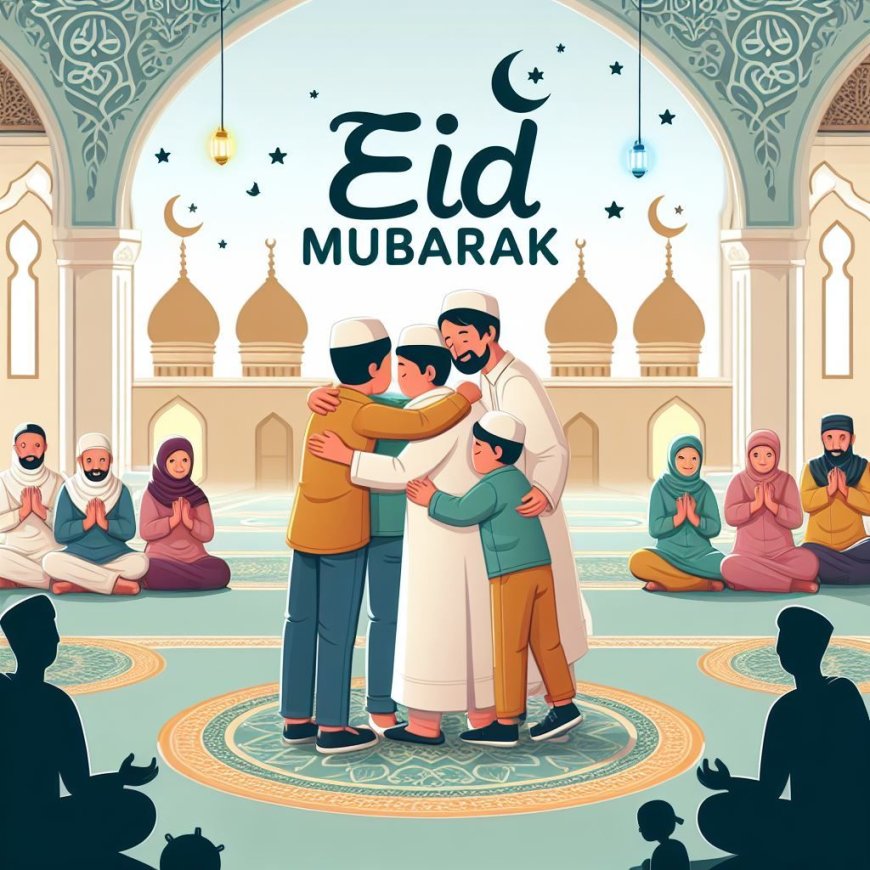Eid-e-Milad-Un-Nabi 2025 in India, UAE : Celebrating the Birth of Prophet Muhammad
Eid-e-Milad-Un-Nabi 2025 in India & UAE marks Prophet Muhammad’s birth with prayers, unity, charity & devotion

Introduction
Eid-e-Milad-Un-Nabi, also known as Mawlid al-Nabi, is one of the most sacred festivals for Muslims around the world. In 2025, the festival will be celebrated with great devotion and cultural vibrance in India, UAE, and across many countries. This occasion marks the birth anniversary of Prophet Muhammad (peace be upon him), who is regarded as the last messenger of Islam. It is a day of remembrance, prayers, and expressing gratitude for his teachings that continue to guide millions.
History and Significance
The festival traces its roots back to the 12th century, when Muslims began commemorating the Prophet’s birth with prayers, gatherings, and sharing of religious stories. The name “Eid-e-Milad” combines Eid (festival) and Milad (birth), symbolizing a celebration of life, faith, and spiritual guidance. For many, it is not just a day of festivity but also a reminder of Prophet Muhammad’s message of peace, compassion, and brotherhood.
Why Muslims Celebrate Eid-e-Milad-Un-Nabi
Muslims celebrate this day to honor the Prophet’s contribution to humanity and his role as the bringer of the final revelation, the Holy Quran. For the community, this festival is a way to remember his sacrifices, teachings, and the values he stood for. In many regions, religious gatherings (mehfil-e-naat), processions, and community meals are organized, reflecting unity and devotion.
Celebrations in India and UAE
-
India: Streets are illuminated with lights, mosques are decorated, and people gather for recitations, charity, and communal prayers.
-
UAE: The day is marked as a public holiday. Large congregations, spiritual talks, and acts of charity are performed, highlighting Islamic culture and unity.
Key Points and Cultural Highlights
-
Special prayers (Durood and Salaam) offered for the Prophet.
-
Naat and Qawwali sessions praising his life and teachings.
-
Community feasts (langar) and distribution of sweets.
-
Public processions with green flags symbolizing peace and prosperity.
Important and Significant Factors
-
Promotes values of peace, tolerance, and kindness.
-
Strengthens community bonds through gatherings and charity.
-
Encourages reflection on moral and spiritual values.
Advantages and Disadvantages
-
Advantages: Reinforces faith, inspires good deeds, spreads harmony, and educates the younger generation about the Prophet’s life.
-
Disadvantages: In some places, large gatherings may create overcrowding, traffic, or safety concerns. Excessive spending on decorations instead of charity can divert focus from the true essence of the day.
Positive and Negative Aspects
-
Positive: A celebration of faith, unity, and remembrance of values.
-
Negative: Sometimes cultural practices overshadow the spiritual essence.
Final Thoughts and Conclusion
Eid-e-Milad-Un-Nabi 2025 will once again remind the world of the timeless message of Prophet Muhammad—peace, compassion, equality, and devotion to God. Whether celebrated in India, UAE, or beyond, the festival unites millions under one faith and shared values. By focusing on charity, simplicity, and prayer, Muslims can uphold the true spirit of this sacred occasion and inspire humanity with love and harmony.
Eid-e-Milad-Un-Nabi Mubarak to all celebrating across the globe!

 Ellofacts
Ellofacts 





